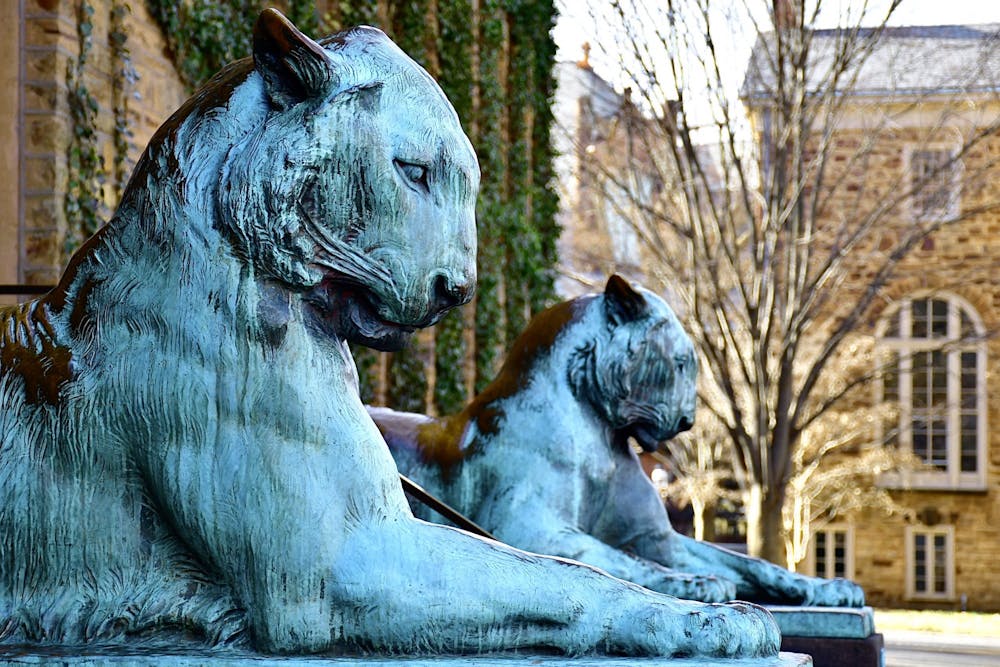The following is a guest contribution and reflects the author’s views alone. For information on how to submit to the Opinion Section, click here.
As the Chair of the Honor Committee, I want to address a recent guest contribution in The Daily Princetonian by Benjamin Gelman ’23, which argues that students should exercise solidarity by refusing to join the Honor Committee. I initially joined the Committee because of horror stories I heard from a professor about pleading with members of the Committee for leniency for accused students, so I understand the argument that the whole system is illegitimate. However, despite the claims made in Gelman’s article, student involvement in the Honor Committee has significantly changed the way the Committee approaches every aspect of its work. I am confident that if students who are skeptical of the Committee chose to apply, it would make the Honor Committee process fairer for students who go through it.
To start, I want to address some misrepresentations of the facts in the guest contribution. The ‘Prince’ did not seek comment from or verify Gelman’s claims with the Honor Committee prior to publication. To suggest, as the article does, that “students who are on financial aid and found guilty of Honor Code and COD infractions are not eligible for grants for the semester they must repeat” is misleading. Most students are found guilty of Honor Code violations at the end of the term — the Honor Committee deals most frequently with final exams — and are allowed to complete the term; thus, they would not have to repeat a semester. Gelman may be referring to this small minority of cases resulting in suspension that occur early in the semester, or where students voluntarily withdraw rather than finish the semester and would therefore have to repeat the semester and have their aid prorated against what they have already used in the semester they are suspended. The Honor Committee is actively engaged with the Undergraduate Student Government (USG) Ad-Hoc Committee on the Disciplinary Process and University administrators to ensure these cases do not result in a financial penalty, but even so, this allegation does not reflect the majority of cases.
Additionally, Gelman portrays the Committee as an unelected and unaccountable bureaucracy muzzled by a “University-sanctioned screening process.” Members of the Honor Committee are not “screened” by perspective, and University administrators have no role whatsoever in selecting appointed members of the Honor Committee. Members of the Honor Committee are also not “unelected”: they are either elected class government members, chosen by elected USG members, or chosen by the Honor Committee itself. While the issue of accountability is subjective, the manner of Honor Committee members’ elections and appointments is not. By publishing Gelman’s article, the ‘Prince’ did a disservice to students by failing to provide accurate context for such misleading claims.
To be clear, I appreciate those who challenge us not to accept the current Honor System as perfect. It is not, by any means. The investigation done by the ‘Prince’ was an important effort to highlight where we continue to fall short and the consequences of those shortcomings. Reasonable minds can also disagree on whether the penalties recommended by the Committee are appropriate. However, I would note that over the past five years, the Committee has overwhelmingly declined to impose suspensions, much less expulsions, except in severe cases or repeat violations.
I serve as a member on the newly-formed USG Ad-Hoc Committee on the Student Disciplinary Process. Among other priorities, the committee is focused on improving the transparency of all disciplinary bodies at the University, including the Honor Committee, Committee on Discipline, and Residential College Disciplinary Boards. It aims to make disciplinary processes more navigable to students accused of violations, eliminate the minority of cases in which a finding of responsibility inadvertently imposes financial aid consequences on students, and assess the appropriateness of the current penalty system.
Student leadership is one of the unambiguously beneficial parts of the Honor System at the University. Findings of responsibility and decisions about penalties can hinge on the votes of individual members of the Committee, so it matters who those Committee members are. The type of student who may read the recent opinion piece and waver on whether or not they ought to join the Committee is exactly the type of student it is essential to have as a member. As Chair of the Honor Committee, I have seen that members who are entirely uncritical of the Honor System are more likely to have a lower, and in my view insufficient, threshold for being “overwhelmingly convinced” of a student’s responsibility for a violation — the Committee’s standard for finding a student responsible. Instead, we need students who believe that the system is imperfect, or who are committed to the system but are wary of whether the Committee always gets it right in practice.
It is essential that Committee members approach each case with a commitment to academic integrity. Any shortcomings of the Honor System do not diminish the importance of a fair exam environment. But an effective Honor Committee member should always balance that commitment with the possibility that our impressions of the case could be wrong. As alluring as it may be to imagine that refusing to join the Honor Committee allows us to cleanse our hands of its potential imperfections, the reality is that this makes it more likely that control of the Committee will pass to students who are far too confident in the righteousness of their decisions.

The Honor Committee also has significant flexibility in determining the pace and intensity of investigations. Committee members bring a student perspective to the process and can accommodate the needs of a student in question more appropriately than a member of the faculty or an administrator could.
I understand the disillusionment many students have regarding the potential to reform the Honor Committee in the wake of the failed 2018 referenda, which understandably remains a touchstone for the seeming impossibility of improving the Honor Committee.
However, despite the failure of these referenda, I want to emphasize that the Committee does not operate in the abusive manner that past iterations of the Committee have; I am confident that the findings of responsibility and penalties assessed by the Committee reflect that change. These changes are a result of both the students who have stepped up to serve on the Committee and those who have advocated for changes to our Constitution. Even regarding the referenda that formally failed, much of their substance have been incorporated into the Honor Committee Constitution and our best practices. This includes the more appropriate penalty of a reprimand for overtime violations and a provision barring reliance on only one student’s testimony. Beyond referenda, the Peer Representatives, as student advocates for students accused of Honor Code violations, play a crucial role in improving the fairness of the Committee’s work.
Some students may want to replace the Honor Code with a new system entirely. Some may question whether exams should be unproctored in the first place. Students’ roles in evaluating allegations of academic integrity, however, is more appropriate than an administrative process. In every hearing, the Committee must evaluate whether a student should reasonably have known their actions were in violation of the Honor Code or Rights, Rules, Responsibilities. With all due respect towards faculty and administrators, those who adopted the Honor Code in 1893 were correct in their novel contention that students are best fit to evaluate this question.

Ceding the unique place that students have in the academic integrity process at Princeton would only serve to reduce student control. In fact, the 2018 final report of the Honor System Review Committee recommended transferring all responsibilities of the Honor Committee to a student-faculty committee mirroring the Committee on Discipline. This would weaken the core idea of the Honor System — that students set our own standards — within the context of past disciplinary precedent.
The Honor Committee is not a perfect institution, but we should believe in the idea that only our peers can assess what we should have reasonably known. We should vigorously defend this core idea against attempts to diminish it, even as I hope we will all work to improve the system in the ways that suit us best. I urge you to include applying to join the Honor Committee in that effort.
Dylan Shapiro is a senior in the School of Public and International Affairs from Atlanta, Georgia. He serves as Chair of the Honor Committee. He can be reached at dylan.shapiro@princeton.edu








